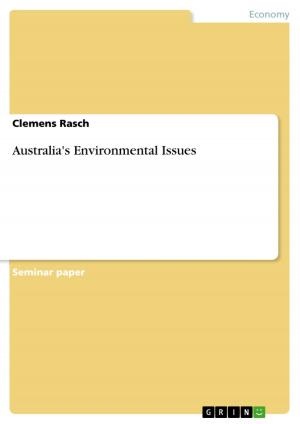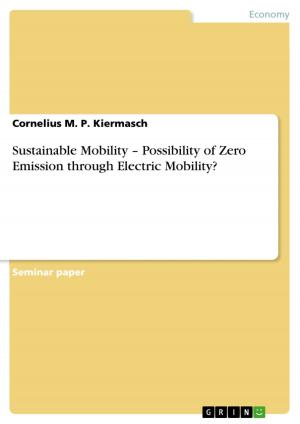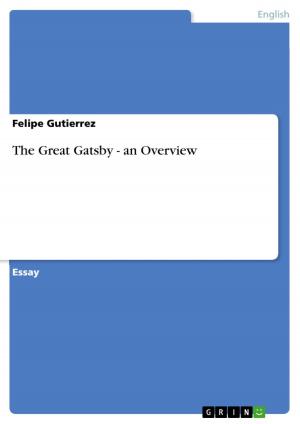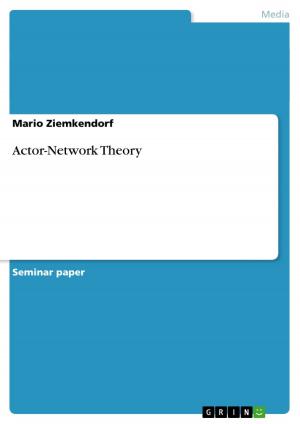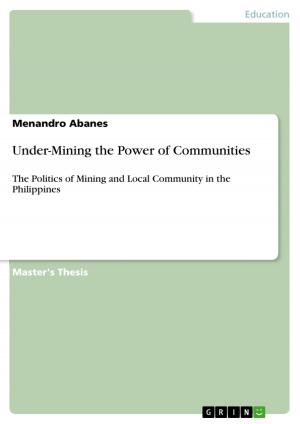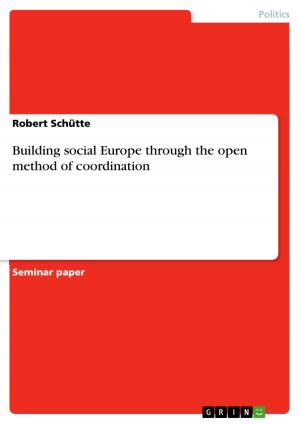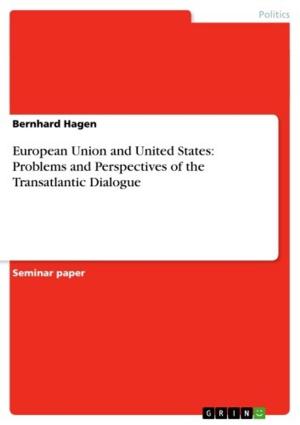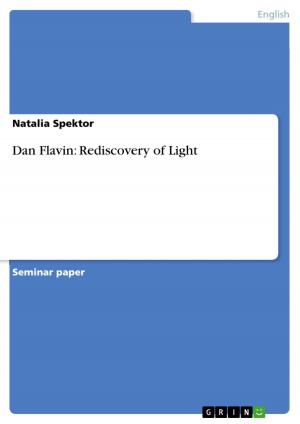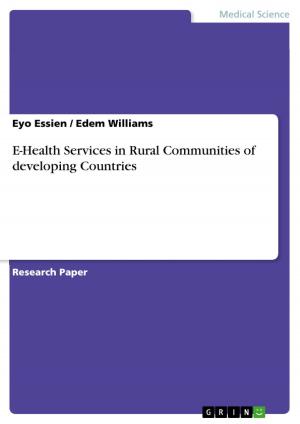Mosque and State
Comparative Analysis
Nonfiction, Social & Cultural Studies, Political Science, International, Foreign Legal Systems| Author: | Daniela Pisoiu | ISBN: | 9783640288977 |
| Publisher: | GRIN Publishing | Publication: | March 13, 2009 |
| Imprint: | GRIN Publishing | Language: | English |
| Author: | Daniela Pisoiu |
| ISBN: | 9783640288977 |
| Publisher: | GRIN Publishing |
| Publication: | March 13, 2009 |
| Imprint: | GRIN Publishing |
| Language: | English |
Seminar paper from the year 2005 in the subject Politics - Political Systems - General and Comparisons, grade: 1,0, Diplomatic Academy of Vienna - School of International Studies, course: Intensive Seminar Comparative Politics , 39 entries in the bibliography, language: English, abstract: Globalisation has put Christianity and Islam face to face, increasing as well as imposing the need for a mutual understanding of each other's heritage - even more so, since religion sees its status of a political variable restored on an international level. Islam is occupying a significant place on many agendas, from security to economic relations or in numerous cultural theories. Hypotheses such as the clash of civilisations, the need to democratise Islamic countries or the upcoming Enlightenment of the Middle East are being put forward and enjoy an ever increasing attention in policy making strategiess. It is therefore significant to explore the question to which extent 'the mosque' - in a more general sense - has an influence on state affairs in a country like Saudi Arabia which, in the opinion of many, excels in religiosity, as compared to a democratic Muslim state like Turkey. This paper takes a brief close-up of the Christian and Islamic heritage regarding the separation of church and state, subsequently analysing the topic in Turkey and Saudi Arabia. In a historical perspective, the question whether and how the mosque has contributed to the foundation of the two states will be answered. The extent to which they resemble an Islamic state will be than shown, investigating also the independence of institutions from the mosque. Finally, it will be seen whether religious beliefs are kept out of public policies motivations, and especially whether public money are used for supporting religious establishments. The analysis should point to one of the four possible mosque-state relationships: identity, symbiosis, subordination, separation.
Seminar paper from the year 2005 in the subject Politics - Political Systems - General and Comparisons, grade: 1,0, Diplomatic Academy of Vienna - School of International Studies, course: Intensive Seminar Comparative Politics , 39 entries in the bibliography, language: English, abstract: Globalisation has put Christianity and Islam face to face, increasing as well as imposing the need for a mutual understanding of each other's heritage - even more so, since religion sees its status of a political variable restored on an international level. Islam is occupying a significant place on many agendas, from security to economic relations or in numerous cultural theories. Hypotheses such as the clash of civilisations, the need to democratise Islamic countries or the upcoming Enlightenment of the Middle East are being put forward and enjoy an ever increasing attention in policy making strategiess. It is therefore significant to explore the question to which extent 'the mosque' - in a more general sense - has an influence on state affairs in a country like Saudi Arabia which, in the opinion of many, excels in religiosity, as compared to a democratic Muslim state like Turkey. This paper takes a brief close-up of the Christian and Islamic heritage regarding the separation of church and state, subsequently analysing the topic in Turkey and Saudi Arabia. In a historical perspective, the question whether and how the mosque has contributed to the foundation of the two states will be answered. The extent to which they resemble an Islamic state will be than shown, investigating also the independence of institutions from the mosque. Finally, it will be seen whether religious beliefs are kept out of public policies motivations, and especially whether public money are used for supporting religious establishments. The analysis should point to one of the four possible mosque-state relationships: identity, symbiosis, subordination, separation.




